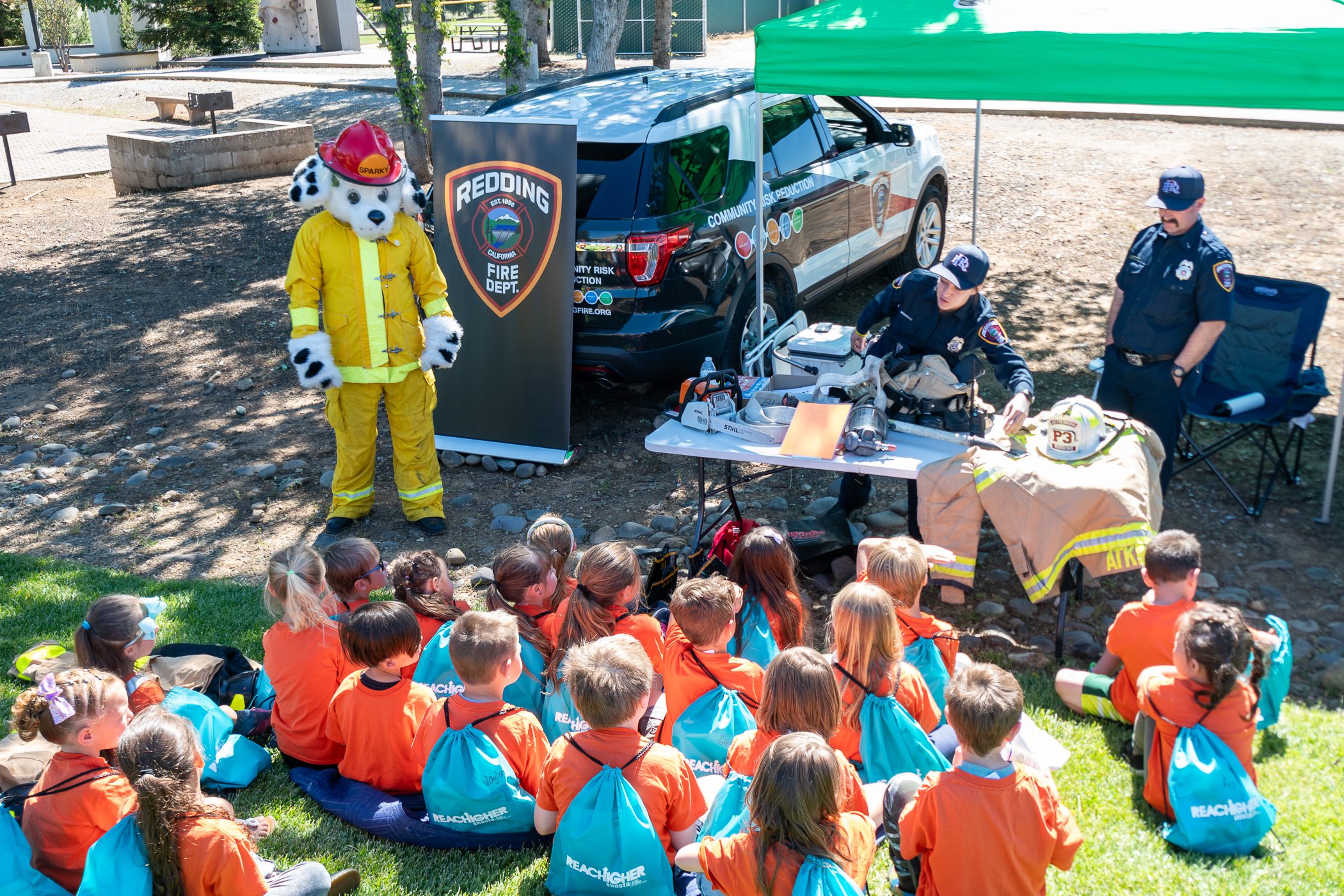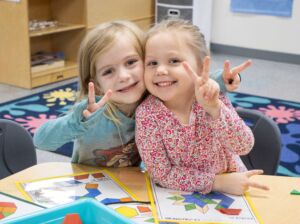Inspiring community service activities for Kindergarten learners
Understanding Elementary School: Key Facts and Interesting Tasks for every single Pupil
Quality college functions as a crucial structure for pupils, mixing scholastic learning with the advancement of social skills. This period is vital for promoting emotional intelligence and resilience. Involving activities can boost interest and motivation, however the challenge hinges on locating the appropriate equilibrium. As instructors and parents navigate this landscape, recognizing the multifaceted nature of grade college comes to be essential. What techniques can efficiently sustain students in this transformative stage?
The Value of Social Abilities in Elementary School
Scholastic expertise is vital, social abilities play an important duty in quality school development. Throughout these formative years, children learn to interact with their peers, discuss conflicts, and develop friendships. Social abilities include a series of expertises, consisting of reliable interaction, compassion, and synergy. These abilities enable pupils to browse the complexities of social characteristics within the classroom and past.
As youngsters participate in group tasks and joint tasks, they develop crucial interpersonal abilities that add to their psychological intelligence. This fundamental know-how fosters a sense of belonging and boosts overall wellness. Youngsters who have strong social abilities often tend to experience better academic outcomes, as they are much more most likely to take part actively in discussions and look for help when needed.
Fundamentally, the cultivation of social abilities throughout quality college is not simply helpful yet essential for cultivating a well-rounded person prepared for future obstacles.
Stabilizing Academics and Creative Thinking
As pupils proceed via elementary school, stabilizing academics with creativity comes to be necessary to their general advancement. This equilibrium cultivates crucial thinking, analytic, and technology, abilities needed for future success. Academic subjects supply foundational expertise, while creative tasks motivate pupils to share themselves and check out brand-new ideas.
Including creativity right into the educational program can boost interaction and inspiration, permitting pupils to get in touch with the product on a deeper level (Grade School). Jobs that mix subjects, such as art and scientific research, can promote inquisitiveness and promote a love for understanding
Innovative outlets like songs, drama, and aesthetic arts assist pupils create emotional intelligence and durability. These experiences add to a versatile education, preparing trainees for a rapidly transforming globe.
Eventually, prioritizing both academics and creativity furnishes trainees with a varied ability, allowing them to navigate obstacles and seize chances efficiently throughout their educational trip and beyond.
Engaging Tasks to Improve Learning
Numerous interesting tasks can significantly improve learning experiences for elementary school pupils. These activities not just make finding out pleasurable however additionally assist enhance essential ideas. Hands-on experiments in scientific research courses enable trainees to explore theories practically, fostering interest and much deeper understanding. Interactive storytelling sessions can boost proficiency skills while stimulating creative imagination and creativity.
Team projects urge partnership, mentor trainees the value of team effort and communication. Including innovation, such as academic games and digital quizzes, can additionally astound students' interest and make finding out more vibrant. Arts and crafts projects can assist in the advancement of great electric motor skills while giving an imaginative electrical outlet.
Additionally, outside activities, like nature strolls or scavenger hunts, attach pupils with the environment and advertise physical health. By integrating these appealing activities right into the curriculum, educators can create a boosting discovering ambience that deals with diverse knowing designs and keeps students inspired.
The Role of Adult Assistance in Education And Learning
Parental support plays a significant duty in the educational trip of elementary school trainees. Research indicates that when moms and dads proactively take part in their child's education, it positively influences academic efficiency, motivation, and overall wellness. Kindergarten. Consistent involvement, whether with homework support or participating in institution events, fosters a complacency and strengthens the worth of education and learning
Additionally, effective communication in between moms and dads and educators enhances the discovering experience. Moms and dads who work together with teachers can better recognize their kid's staminas and challenges, enabling tailored support. This collaboration urges liability and sets high assumptions for pupils.
Furthermore, adult perspectives towards education have a peek here and learning substantially influence kids's viewpoints. It grows inquisitiveness and strength in their youngsters when parents demonstrate a positive outlook on discovering. Ultimately, the structure of adult assistance is crucial fit students' perspectives, habits, and scholastic success throughout their elementary school years.
Developing a Positive Discovering Setting
Developing a favorable understanding environment is vital for promoting academic success and emotional wellness among elementary school students. Such an atmosphere promotes engagement, encourages collaboration, and enhances inspiration. Educators play a substantial role in establishing this ambience by applying approaches that focus on inclusivity, assistance, and respect.
Classroom management techniques, such as clear assumptions and constructive responses, are very important in supporting a feeling of security. In addition, integrating diverse teaching approaches can satisfy various learning designs, making sure that all trainees feel valued.
Urging peer interactions and group activities also grows social skills and a sense of neighborhood. Celebrating accomplishments, regardless of how tiny, strengthens favorable habits and boosts self-worth.
Ultimately, a favorable knowing setting not only enhances academic efficiency but likewise fosters psychological resilience, aiding trainees thrive both inside and outside the class. This foundation is significant for their overall development and long-lasting knowing trip.
Methods for Developing Essential Believing Abilities
Effective strategies for establishing critical believing skills in elementary school include encouraging inquiry-based understanding and advertising problem-solving activities. Inquiry-based understanding fosters interest and permits students to check out concerns, while analytical tasks challenge them to use their expertise in useful circumstances. With each other, these methods enhance students' capability to believe seriously and independently.
Motivating Inquiry-Based Understanding
How can teachers cultivate a class atmosphere that advertises inquiry-based learning? Teachers can create an environment that motivates interest by posturing flexible inquiries and promoting discussions that prompt students to explore various perspectives. Encouraging students to ask their very own questions can further stimulate their vital thinking skills. Integrating hands-on tasks and real-world issues allows students to engage straight with the product, cultivating much deeper understanding. Furthermore, giving opportunities for collaborative tasks can improve peer-to-peer discovering, where students share insights and improve each various other's concepts. By integrating technology and sources that sustain exploration, educators can aid trainees take ownership of their knowing journey, thus growing a state of mind of inquiry that prolongs past the classroom.
Promoting Problem-Solving Activities
While promoting problem-solving tasks in the class, educators can considerably improve trainees' crucial reasoning skills. By including hands-on jobs, group conversations, and real-world situations, teachers encourage trainees to analyze scenarios, visit their website determine patterns, and discover several solutions. Involving students in joint challenges not just advertises teamwork but additionally improves their capability to articulate reasoning and warrant their selections. Additionally, integrating technology with coding workouts or simulations can promote innovative analytic methods. Reviewing pupils' mind through reflective methods permits for deeper understanding and enhancement. On the whole, promoting analytical activities grows an environment where critical believing prospers, equipping trainees with crucial skills for future academic and life difficulties. These methods inevitably prepare learners to navigate complicated problems with self-confidence and innovation.

Often Asked Inquiries
What Age Do Children Usually Beginning Elementary School?
Youngsters usually begin elementary school at around age six. This age can vary somewhat relying on neighborhood educational plans and individual readiness, yet 6 years of ages is the most typical starting factor for official education and learning.
How Can I Assist My Kid With Research?
To aid with homework, parents can create a structured atmosphere, develop a regular, motivate inquiries, provide sources, and provide assistance without providing direct responses, promoting freedom and vital reasoning in their kid's discovering process.
What Prevail Grade School Learning Challenges?
Common elementary school finding out obstacles consist of difficulties with reading comprehension, mathematics principles, focus period, and social abilities. These challenges can impact academic performance and need tailored assistance to help students attain their complete possibility.
Just How Can Parents Communicate Efficiently With Educators?
Reliable interaction between moms and dads and instructors can be attained with regular updates, open discussions, arranged conferences, and active listening. Building a joint connection fosters understanding and sustains the kid's instructional journey favorably.
What After-school Activities Are Offered in Quality Institution?
Grade colleges usually offer a range of extracurricular activities, consisting of sports groups, music and art programs, dramatization clubs, and academic competitors. These activities boost social skills, foster team effort, and encourage creative thinking among pupils outside the class.

Grade school offers as a vital foundation for students, mixing scholastic knowing with the development of social abilities. Numerous interesting tasks can substantially boost finding out experiences for grade college trainees. Creating a favorable knowing environment is essential for cultivating academic success and psychological well-being among quality school trainees. Inquiry-based understanding fosters inquisitiveness and permits trainees to discover questions, while analytic you could try these out activities test them to use their knowledge in functional scenarios. While fostering analytical activities in the classroom, instructors can considerably improve trainees' essential thinking skills.